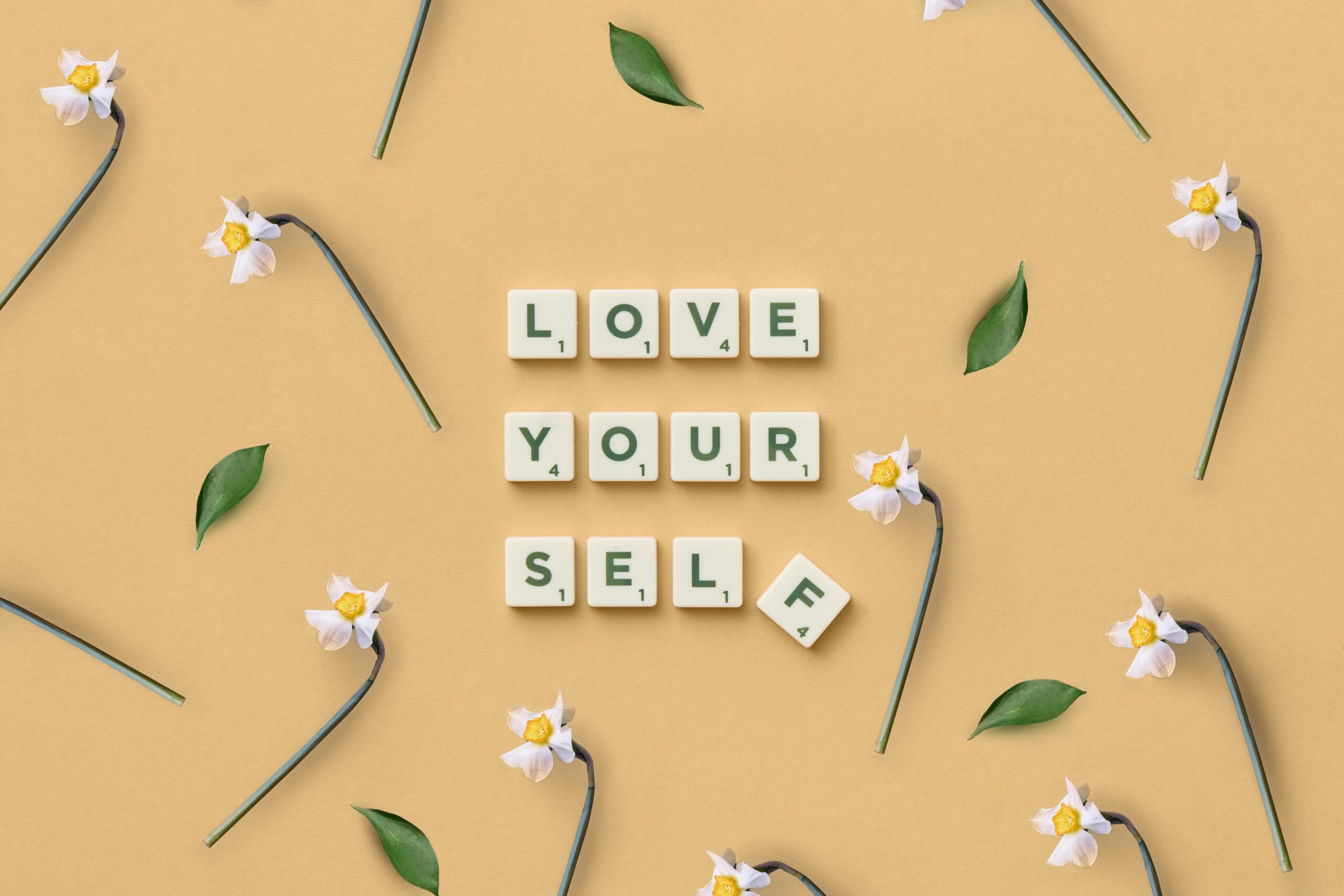Introduction
“To fall in love with yourself is the first secret to happiness.” This powerful quote encapsulates the importance of self-esteem in our lives. Self-esteem isn’t just a buzzword; it’s the foundation of mental health, personal growth, and confidence. When we nurture our self-esteem, we unlock the door to empowerment and self-love, enabling us to face life’s challenges with resilience and positivity. In this guide, we will explore actionable steps to build self-esteem, foster self-love, and empower you to embrace your unique worth.
What is Self-Esteem?
Self-esteem refers to the way you perceive and value yourself. It’s a holistic view of your self-worth, encompassing confidence, self-respect, and belief in your abilities. At its essence, self-esteem is a reflection of how much you believe you deserve love, respect, and happiness in life.
The Link Between Self-Esteem and Mental Health
Self-esteem and mental health are deeply interconnected. Low self-esteem often manifests as feelings of inadequacy, chronic self-doubt, and a heightened susceptibility to anxiety or depression. This can create significant barriers to personal growth, relationships, and overall life satisfaction. Conversely, cultivating healthy self-esteem builds resilience, fosters a positive mindset, and enhances emotional well-being.
Self-Love vs. Self-Esteem
While self-love and self-esteem are closely related, they serve distinct purposes. Self-love involves intentional actions and practices to nurture your physical, mental, and emotional well-being. Think of self-love as the process of caring for yourself, while self-esteem is the outcome—the inner confidence and self-respect that arise from consistent acts of self-love. Together, they create a powerful foundation for personal growth and happiness.
The Importance of Self-Love in Building Self-Esteem
What is Self-Love?
Self-love is the practice of treating yourself with kindness, compassion, and respect. It’s about prioritizing your well-being and accepting yourself unconditionally. Without self-love, building self-esteem becomes nearly impossible.
Self-Love as the Foundation for Confidence and Empowerment
When you practice self-love, you create a strong foundation for confidence. This confidence empowers you to pursue your goals, face challenges, and grow as a person. Self-love fuels the courage to embrace your imperfections and celebrate your uniqueness.
Signs of Low Self-Esteem
Behavioral Indicators
People with low self-esteem often avoid taking on new challenges due to a fear of failure or rejection. This avoidance can manifest in procrastination, reluctance to express opinions, or hesitance to pursue goals. Struggling to accept compliments and downplaying achievements are also common behaviors that reflect underlying self-doubt.
Emotional Indicators
Persistent feelings of inadequacy, fear of failure, and a lack of self-worth can dominate the emotional landscape of someone with low self-esteem. They may frequently experience anxiety about how others perceive them, feel overly sensitive to criticism, or constantly compare themselves to others, which reinforces negative feelings.
Cognitive Patterns
Individuals with low self-esteem may engage in negative self-talk, such as repeating thoughts like “I’m not good enough” or “I’ll never succeed.” These cognitive distortions can create a self-fulfilling cycle where doubt and fear inhibit action, leading to feelings of hopelessness and frustration.
Physical Manifestations
Low self-esteem doesn’t just affect the mind; it can also manifest physically. Common signs include slumped posture, avoiding eye contact, or even neglecting personal grooming or self-care due to a sense of unworthiness.
Impact on Relationships and Career
Low self-esteem can significantly impact one’s ability to form and maintain healthy relationships. It may lead to codependent tendencies, difficulty setting boundaries, or even sabotaging relationships out of fear of abandonment. In the workplace, it might result in avoiding leadership opportunities or underestimating one’s potential, thereby hindering career growth.
The Vicious Cycle of Negativity
Over time, these indicators can create a downward spiral. Avoiding challenges and opportunities leads to fewer successes, reinforcing the belief that one is incapable or unworthy. This cycle can be difficult to break without intentional effort to build self-esteem.
Step-by-Step Guide to Loving Yourself
1. Acknowledge Your Self-Worth
Take time to reflect on your unique qualities and achievements. Write down what you’re proud of and remind yourself of these daily. Practice positive affirmations like, “I am worthy of love and respect.”
(Keywords: self-worth, positive mindset)
2. Challenge Negative Self-Talk
Identify limiting beliefs and reframe them. For example, replace “I’m not good enough” with “I am capable and learning every day.” Recognizing and challenging these thoughts is a cornerstone of mental health and personal growth.
(Keywords: mental health, personal growth)
3. Prioritize Self-Care
Make self-care a daily habit. Exercise, eat nourishing foods, practice mindfulness, and ensure you’re getting enough rest. These practices reinforce your commitment to self-love and overall well-being.
(Keywords: self-care, self-love)
4. Set Realistic Goals for Personal Growth
Break your goals into manageable steps and celebrate small wins. This not only builds confidence but also creates momentum for achieving bigger milestones.
(Keywords: personal growth, confidence)
5. Embrace Imperfections
Recognize that nobody is perfect, and that’s okay. Treat yourself with the same compassion you would offer a friend. Self-compassion is essential for self-improvement and self-love.
(Keywords: self-love, self-improvement)
6. Surround Yourself with Positive Influences
Seek out people who uplift and inspire you. Avoid toxic relationships that drain your energy and self-worth.
(Keywords: self-worth, empowerment)
7. Develop a Gratitude Practice
Cultivate a positive mindset by focusing on what you’re grateful for. Start a gratitude journal or make it a habit to list three things you’re thankful for each day.
(Keywords: positive mindset, mental health)
8. Invest in Lifelong Learning
Learning new skills or hobbies boosts your confidence and sense of achievement. It also fosters self-improvement and empowerment.
(Keywords: self-improvement, empowerment)
9. Seek Professional Support When Necessary
Don’t hesitate to reach out to a therapist or counselor if you struggle with low self-esteem. Professional support can provide invaluable tools for improving mental health and self-worth.
(Keywords: mental health, self-worth)
Common Myths About Self-Esteem
Self-Esteem Equals Arrogance
Many people confuse confidence with arrogance, but they are not the same. Confidence stems from a healthy belief in one’s abilities, rooted in self-worth and self-respect. Arrogance, on the other hand, is often a mask for insecurity, characterized by a need to dominate or belittle others to feel superior. True self-esteem empowers you to uplift others, not tear them down.
Confidence Comes Naturally
This is one of the most pervasive myths. Confidence is not an innate trait but a skill that can be learned and strengthened over time. It requires practice, persistence, and a willingness to step out of your comfort zone. Simple actions, such as setting small goals and achieving them, can gradually build authentic confidence.
Self-Love is Selfish
Far from being selfish, self-love is essential for overall well-being. Taking time to care for yourself—whether through physical self-care, setting boundaries, or nurturing your mental health—enables you to show up more fully for others. Self-love equips you to offer genuine support without feeling drained or resentful.
High Self-Esteem Means Never Feeling Doubt
Even those with high self-esteem experience moments of doubt or insecurity. The difference lies in how they respond. Rather than allowing self-doubt to take control, they use tools like self-compassion and positive self-talk to navigate challenges. This resilience is a hallmark of healthy self-esteem.
Only External Achievements Build Self-Esteem
While accomplishments can boost self-esteem temporarily, lasting self-worth comes from within. It’s about recognizing your inherent value, independent of external validation. Cultivating a sense of inner worth ensures that your confidence remains stable, even in the face of setbacks.
Self-Esteem is Fixed and Unchangeable
Another common myth is that self-esteem is static. In reality, self-esteem can grow and evolve throughout your life. By consistently practicing self-love, challenging negative beliefs, and focusing on personal growth, you can strengthen your self-esteem at any stage.
People with High Self-Esteem Never Fail
Failure is a natural part of life, and those with high self-esteem understand this. They view failure as an opportunity to learn and grow rather than a reflection of their worth. Embracing failure with a growth mindset allows them to bounce back stronger and more resilient.
The Benefits of High Self-Esteem
Improved Mental Health
Reduced stress, anxiety, and depression.
Better Relationships
Healthy boundaries and mutual respect.
Increased Confidence
A positive mindset that enables you to embrace challenges.
Personal Growth and Empowerment
Unlocking your potential through self-improvement.
Practical Tools and Resources for Building Self-Esteem
Books and Podcasts
Books and podcasts are powerful tools for learning and self-reflection. Look for resources specifically designed to boost self-esteem, such as “The Gifts of Imperfection” by Brené Brown, which provides actionable insights on embracing vulnerability and imperfection. Podcasts like “The Confidence Chronicles” or “Unlocking Us” can offer weekly doses of motivation, relatable stories, and expert advice on self-worth and empowerment. These resources encourage personal growth and equip you with strategies to overcome negative thought patterns.
Apps and Tools
Digital tools can play a pivotal role in developing healthy self-esteem. Journaling apps like “Day One” or “Journey” help you track your progress, express gratitude, and document achievements. Meditation apps such as “Headspace” or “Calm” guide you toward mindfulness, enabling you to manage stress and cultivate a positive mindset. Additionally, affirmation apps like “ThinkUp” let you record personalized affirmations to play back daily, reinforcing positive beliefs about yourself.
Online Communities
Connecting with like-minded individuals can be incredibly empowering. Join forums like “Reddit’s r/selfimprovement” or specialized Facebook groups focused on mental health and self-esteem. These platforms allow you to share experiences, seek advice, and celebrate milestones with a supportive network. Surrounding yourself with encouragement and accountability fosters a sense of belonging and motivates personal improvement.
Therapy and Coaching
Professional support is one of the most effective tools for improving self-esteem. Therapists and life coaches can provide personalized guidance tailored to your unique challenges and goals. Cognitive-behavioral therapy (CBT), for instance, is highly effective in reframing negative thought patterns and building self-worth. Life coaching, on the other hand, focuses on practical strategies for personal growth and achieving your aspirations.
Workshops and Courses
Many organizations and educators offer workshops or online courses on building self-esteem and confidence. Websites like Udemy, Coursera, and Skillshare host classes on topics like mindfulness, self-compassion, and assertiveness. Attending these sessions helps you gain new perspectives, learn practical tools, and connect with others on the same journey.
Physical Activities
Physical activities such as yoga, dance, or even group fitness classes can significantly boost self-esteem. Engaging in regular exercise not only improves your physical health but also fosters a sense of achievement and enhances your mental well-being. Activities like yoga combine physical movement with mindfulness, promoting self-awareness and reducing stress, while team sports cultivate camaraderie and mutual encouragement.
Conclusion
Building self-esteem is a journey, not a destination. By practicing self-love, prioritizing self-care, and challenging negative self-talk, you can create a positive mindset and empower yourself to live a fulfilling life. Remember, you are worthy of love and respect, and the journey to loving yourself starts with a single step. Take that step today and embrace the incredible person you are.
What’s your first step toward self-love? Share your journey in the comments below or explore additional resources to continue your growth.




